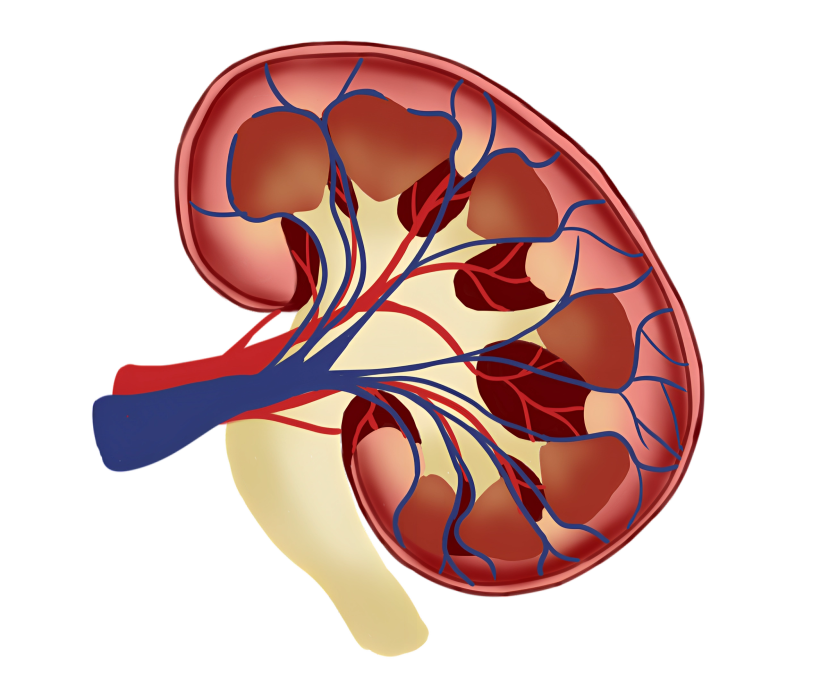Why does a sick person with a bad kidney reject a healthy kidney?
![Why does a sick person reject a kidney? [istock]](https://image.api.sportal365.com/process/smp-images-production/pulse.ng/26092024/9c8ddd5a-6e59-4713-b7d1-8ac568e0fe27?operations=autocrop(700:467))
Given the news of renowned Nigerian music video director TG Omori's failed kidney transplant, one might question why a sick person's body would reject an organ essential for their survival.
Kidney transplants make up nearly 60% of all organ transplants globally, largely due to popular lifestyle choices leading to kidney failure.
Dialysis serves as a lifeline for patients waiting for a compatible kidney donor, enabling a better match. Despite this, organ rejection continues to be a major obstacle, affecting 15-20% of kidney transplant recipients globally.
We sought permission from Dr John Bishop, an NHS Emergency Medicine Specialist Doctor in the United Kingdom, to share his insights on this issue. He provided valuable information in an extensive thread on X.
Here are three major reasons why kidneys get rejected
1. HLA Mismatch
Human leukocyte antigens (HLAs) are crucial for the immune system to differentiate between "original" and "counterfeit." Each individual possesses a unique set of HLAs inherited from their parents.
When transplanting an organ from a donor, the immune system recognises the foreign HLAs as a threat, initiating an immune response.

2. T-Cell activation
T-cells are white blood cells that are part of the reason why an organ might get rejected. Upon detection of foreign HLAs, they activate, attacking the transplanted organ with inflammatory cytokines, leading to acute rejection within weeks to months post-transplant.
3. Antibody-mediated rejection
Antibody-mediated rejection (AMR) occurs when the body produces antibodies against the transplanted organ, targeting specific antigens on the donor organ's cells.
This rejection is challenging to treat and can cause severe organ damage, making it impossible to return the transplanted organ to the donor.
ALSO READ: 5 drinks that can damage the kidneys
How to prevent kidney rejection
Bishop also continued by stating how to prevent organ rejection. He said that transplant recipients are prescribed lifelong immunosuppressive therapy to prevent organ rejection. These medications reduce the immune system's response, reducing the risk of organ attack.
Balancing immunosuppression is challenging, as too little can lead to rejection and too much can increase infection risks.
Organ rejection, according to him, shows that “the very system designed to protect us can, under certain conditions, turn against us—particularly when a foreign organ is involved.”
![The truth about waist traners revealed [Credit: The Corset Center]](https://image.api.sportal365.com/process/smp-images-production/pulse.ng/13082024/663460ae-e4e0-4e3d-bfb5-364a61ff8afe?operations=autocrop(640:427))
![Here are 7 effective ways to control premature ejaculation [Credit: NetDoctor]](https://image.api.sportal365.com/process/smp-images-production/pulse.ng/13082024/f6fed057-1754-4a88-9ca5-6c13b67c0cfc?operations=autocrop(236:157))
![Here are 7 foods you need to eat for increased sexual stamina [Credit: Improving Men's Libido]](https://image.api.sportal365.com/process/smp-images-production/pulse.ng/13082024/4914d2bb-8cb1-4618-bf94-0b4b7731a10f?operations=autocrop(236:157))
![What are the causes of low sex drive in women and here’s how to increase it [Credit: Verywell Family]](https://image.api.sportal365.com/process/smp-images-production/pulse.ng/13082024/eb9deac7-dc68-4a01-8885-7317d43af034?operations=autocrop(236:157))
![Sperm- killers, here are 7 things that men need to watch out for [Credit: The Mary Sue]](https://image.api.sportal365.com/process/smp-images-production/pulse.ng/13082024/6b5ddea4-6aca-4b19-9cfd-730f94b6e876?operations=autocrop(236:157))
![7 common things that shouldn't be found in your bedroom. [bustle]](https://image.api.sportal365.com/process/smp-images-production/pulse.ng/31072024/f82f0b15-a166-4c63-bf98-c16ae77114f1?operations=autocrop(236:157))
)
)
![Here are 5 natural ways to combat erectile dysfunction [Credit: Video Blocks]](https://image.api.sportal365.com/process/smp-images-production/pulse.ng/13082024/5e3dc364-7318-40cb-a720-4ad5986ea32b?operations=autocrop(236:157))
)
)
)
)
)
)
)